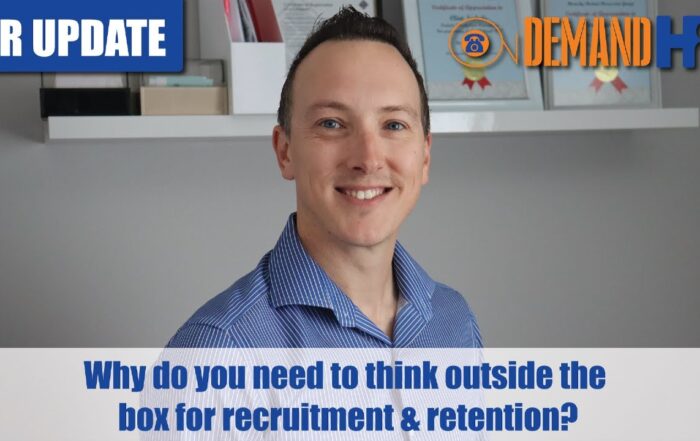The Future Of Covid 19 Vaccine Mandates?
A recent case in the New Zealand High Court could serve as a leading indicator that things may a change on our side of the ditch in the future. So today, we are going to unpack some of the key details of this case which saw the New Zealand Police and Defence Force challenging vaccination mandates in the High Court, with the outcome being that previously suspended unvaccinated employees being allowed to return to the work.
Please see below for a full transcript of this video
Share the HR or workplace relations challenge facing your business and one of our experienced consultants will be in touch within 24 hours with a strategic action plan or discover the best strategy yourself by accessing out free online training library.
Transcript
Will vaccination mandates remain in place in NSW forever? There are some industries in NSW where unvaccinated workers are still unable to attend work including in education, healthcare, transport workers, police, and airport workers to name a few. In addition, there are some individual companies who have decided to mandate Covid-19 vaccination in their business.
However, a recent case in the New Zealand High Court could serve as a leading indicator that things may a change on our side of the ditch in the future. So today, we are going to unpack some of the key details of this case which saw the New Zealand Police and Defence Force challenging vaccination mandates in the High Court, with the outcome being that previously suspended unvaccinated employees being allowed to return to the work.
Whilst there was a religious freedom element to the case, Justice Cooke presiding on the case ultimately stated in the decision that “I do not accept that a belief in an individual’s bodily integrity and personal autonomy is a religious belief or practice”. The ruling also addressed a couple of other findings which are quite different from those in the NSW Supreme Court almost 6 months ago.
Firstly, Justice Cooke found that “the associated pressure to surrender employment involves a limit on the right to retain that employment, which the above principles suggest can be thought of as an important right or interest recognised not only in domestic law, but in the international instruments”.
This is of interest as the NSW Supreme Court found that so called vaccination mandates for the purposes of employment were in effect not mandates. In other words, employees were not being forced to receive a vaccination, only it was requirement to attend work and therefore could simply choose not to work. The New Zealand decision seems to view this differently in that a person has the right to work, therefore due to public health policy the mandating of vaccination is directly affecting a right to work.
One of the original arguments in NSW by both government and some businesses was that Covid vaccinations were a control measure in part to prevent the spread or transmission of the virus. Whilst this may have been true with the initial “Alpha” variant, it appears to not be true for Omicron based on the New Zealand High Court decision.
Justice Cook states “In essence, the order mandating vaccinations for police and NZDF staff was imposed to ensure the continuity of the public services, and to promote public confidence in those services, rather than to stop the spread of Covid-19. Indeed health advice provided to the government was that further mandates were not required to restrict the spread of Covid-19. I am not satisfied that continuity of these services is materially advanced by the order”.
“Covid-19 clearly involves a threat to the continuity of police and NZDF services. That is because the Omicron variant in particular is so transmissible. But that threat exists for both vaccinated and unvaccinated staff. I am not satisfied that the order makes a material difference, including because of the expert evidence before the court on the effects of vaccination on Covid-19, including the Delta and Omicron variants.”
So what do we take out of these statements? Our opinion is that the New Zealand High Court believes Covid-19 vaccines may not be effective enough (or at all) in slowing or preventing the transmission of the Omicron variant of Covid-19. So from an employment perspective, it seems that the NZ High Court have taken the view that the Covid-19 vaccination becomes an individual decision which does not impact on the health of fellow employees, customers or the general public, and rendered the mandate in these industries unlawful.
So will this view translate across to NSW and more broadly Australia? Time ultimately will be the judge of this. However, it seems inevitable that mandatory vaccination policies across industries and businesses are likely to come under the microscope again in 2022 and at the very least will challenge current mandates being extended to require booster shots.






